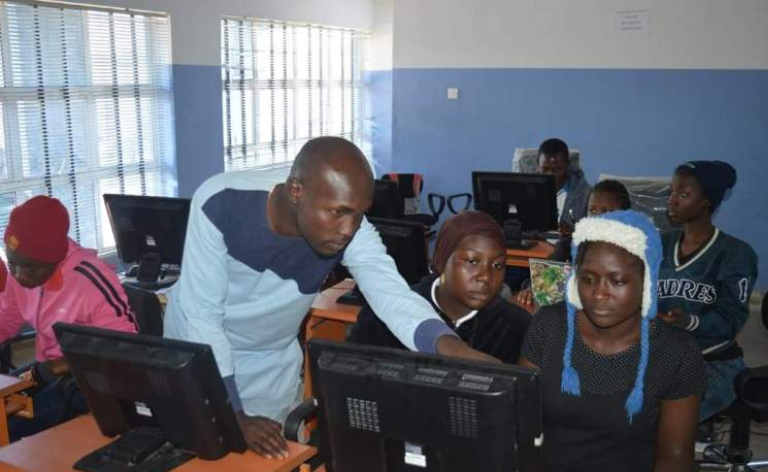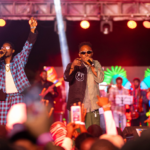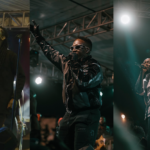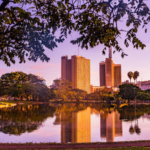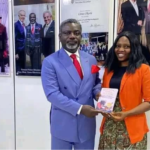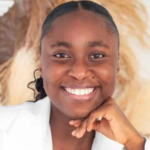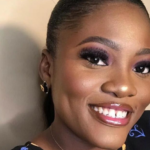Impacting Nigeria: Eno-Obong Edem and the Lafia History Learning Center
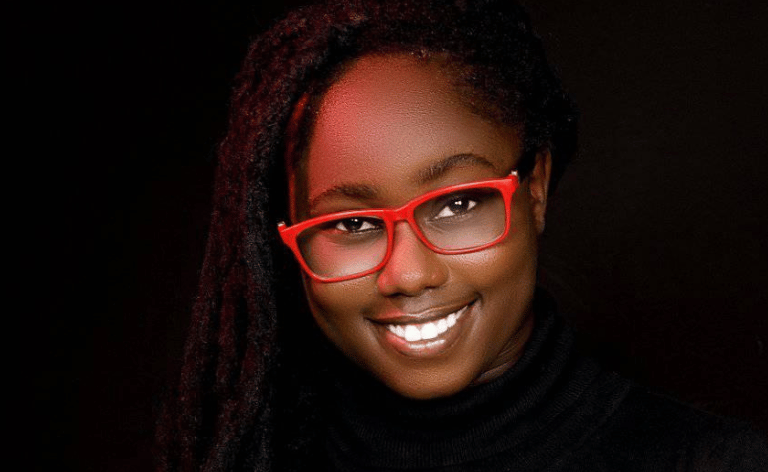
I started both the Not All Heroes Wear Capes Series and the Impacting Nigeria Series for the same purpose, to bring to public notice the strides Young Nigerians around the country were making to create a positive impact and change in our great Country. In recent times, stories of NYSC Corpers doing community projects have broken forth like Stephen Teru who made desks with his carpentry skill for the school he served in. Today I bring you another such story – of Eno-Obong Edem and the Lafia History Learning Center. Today, the Lafia History Learning Center will be officially launched and commissioned. I’m especially excited about this one because I love history and totally advocate for its inclusion as a means of strengthening National Unity and Nationalism. I’m also a bit biased because Eno is from Jos so Jos to the World! Read below my little chitchat with Eno.
Before I was mobilized for the One-year mandatory service, I had already made up my mind to use the NYSC as a platform to give back to any community I was going to find myself in. I really wanted to serve Nigeria. And the best way to do that was to give back to the community by carrying out a project under the auspices of the NYSC that would meet a specific community need. So the moment I was posted to Lafia, I began thinking and praying for the right project to undertake that would make a great impact.
In the beginning, I hadn’t envisioned that the project would be a history library or anything related to my course of study. I studied History and International Studies at the University of Jos and was posted to a Government Secondary School in Lafia to teach history as a subject to the junior students. I soon realized that the school had never had a history teacher neither had they learned history before in both the junior and senior classes and the students were grossly oblivious of the basic history of their nation. Maybe the senior students had a glimpse of some Nigerian history but in general, they were not informed about it. Funny enough, the State had already begun the mandatory addition of the subject to the secondary school curriculum yet teaching aid and materials were not provided.

I didn’t know where to begin from. Nothing was given to me to teach the students except the scheme of work. I found it rather challenging to start teaching a group of people history who had no basic knowledge of the subject without history materials like textbooks and teaching aids even. My old history materials were too advanced. So I decided to come back to Jos and purchase a history text for Secondary School with some teaching aids
To my surprise, the students developed an interest in the subject and were enthusiastic to know more. Aside from this, history has a way of deepening our sympathies as individuals and also goes further to make us live more humanely and in unity especially in the face of our diversity as a nation.
I was determined to stir up in them that sense of patriotism and responsibility to their nation. And this wasn’t going to happen with just social studies or Civic. Learning their History was important in reaching that goal.
Like I mentioned earlier, the study of a nation’s history goes beyond knowing dates and old kingdoms but understanding the peculiarities that played in the weaving of a nation. For a multi-diverse nation like ours, history goes a long way in fostering unity, tearing down the petty ethnoreligious biases, evoking a desire to have sound leadership and strengthen nationalism which is in desperate need right now.
There’s no child who has never asked his/her parent about their roots and how they came about. Parents always find pleasure and a sense of responsibility to enlighten the child. We all feel children should know how they and their great grandparents came about to the extent that sometimes Parents add some fiction. This shows us the importance of having a child know his/her root and background from a tender age.
I’ve always admired American kids who are well-schooled in the history of America. They grow up with a sense of pride and patriotism for their country. It becomes a part of them as they grow older. They develop a sense of responsibility and love for their country that is not easily taken away when they are all grown. They can stand and fight for their nation. I want the same for our Nigerian kids. Not because it’s fancy but because it’s necessary considering the fact that our own history has been less told and is fast disappearing from our schools and becoming a less-trodden path in higher institution.
Another issue I sought to address is strengthening the reading culture among school children. They might never have all this knowledge if they don’t read. As Harry Truman said, “not all readers are leaders, but all leaders are readers.�? No matter how much knowledge can be accessed in seconds on the internet, libraries remain relevant in the development of any society. It’s where our histories have been preserved and a place where people acquire equal access to information. Even as the world gets more digitized, libraries have become electronic too because it is inevitably relevant in enlightenment. And enlightenment is paramount when it comes to nation-building and community development. I read somewhere that public libraries in America are more in number than Starbucks. In the developed world, there’s hardly a community without a single community library! It’s that important. Particularly where I served, many of the kids are from low-income families and hence in the public schools. The parents of these children also couldn’t afford to get most of the necessary school books for their wards. That’s why I believed having a library where they could access these books freely would go a long way in building a quality educational background.

Generating funds for the project was the most challenging task in the entire process. Also, the NYSC had a rule that Community Development Projects were not to be funded from corps member’s pockets. And so in the proposal of any project, at least 3 or more prospective sponsors should be listed. Even without that policy, I didn’t have the wherewithal to single-handedly fund the project. So I began sending letters to individuals especially those in public offices, school principals, banks and ministries and organizations. I got many disappointments at first but I was determined to get it done before I pass out so I kept going to their offices and making calls. While many loved the idea and supported generously both financially and materially, a lot loved the idea but were not able to donate but they dropped one or two words of encouragement. And in this fund sourcing process, I established relationships with people whom I wouldn’t have met ordinarily. It was an amazing experience.
I tell every young Nigerian I meet that we are responsible as individuals for transforming our nation to what we want it to look like. If only we take this seriously, we’d discover that our efforts put together no matter how little scattered around different communities would cause a significant positive change in Nigeria in no time at all. And to corps members around the country, this is what service to humanity and to our nation is really all about; leaving a community better than you met it.
Lastly, it is in giving that we get. When we give out and give back to our communities our youthful energy, strength, intellect and resources in building our nation, it is then that we can get the satisfaction and development that we desire as a people.
There are many ways to go about it. A good start is getting acquainted with the history of your country.
Did I mention that I started a history club in the school too to further learning of history among students outside the strict atmosphere of the classroom and It got them engaged in several activities like drama and other presentations on the assembly ground? They found it really exciting!
When we sing the National Anthem and recognize the labours of our Heroes Past, these are the labours we celebrate not just those who held public office. Let’s all be encouraged to do our bit in our own corner to create change and the ripple effect will surely be seen.
Thank you for reading and see you next time on the Impact Nigeria Series.


